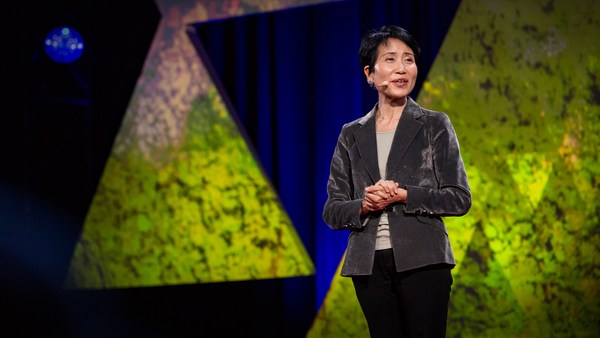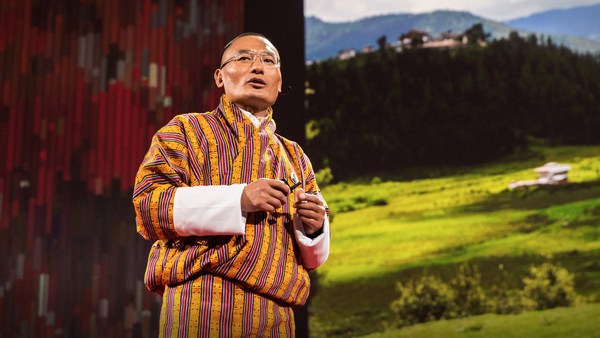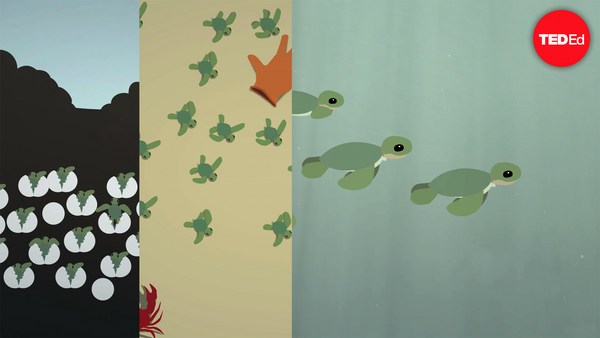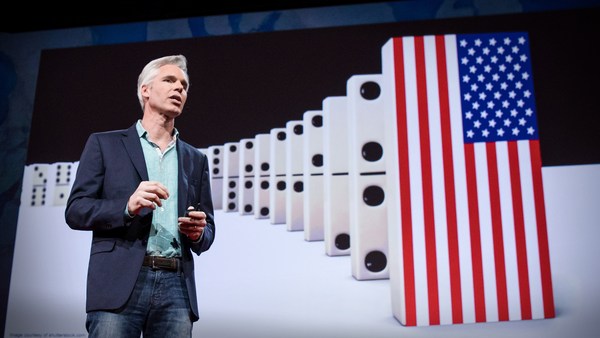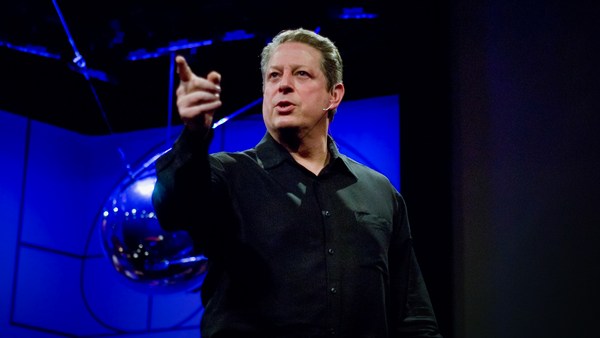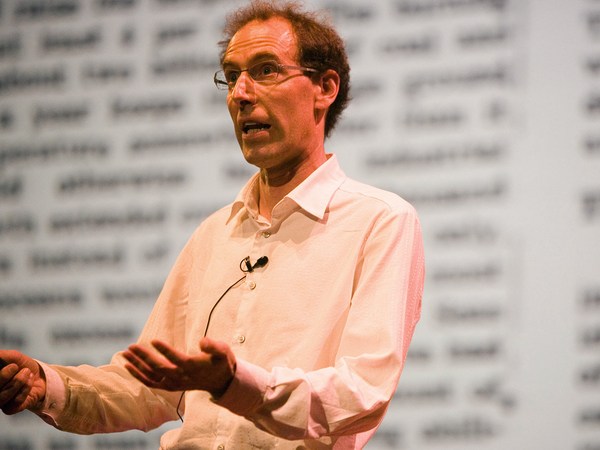Whitney Pennington Rodgers: Marcelo Mena is an environmentalist and a scholar, and he is the former Minister of Environment for Chile. Welcome, Marcelo.
Marcelo Mena: How are you doing, Whitney? Thanks for the invitation.
WPR: Perfect. Great. Of course, thank you so much for being with us here today. And you know, before we dive into the future of climate action in Chile and beyond, I think it would be great for us to talk about the present and why Chile really represents a country that is worth thinking about when we talk about climate. You know, recently there have been lots of commendable actions taken by your country when we think about climate. Chile recently committed to net-zero emissions by 2050, the first in the Americas to do this, and that's especially notable when you think about how much of Chile's economy really depends on carbon emissions: mining and agriculture and spaces like that. So could you start a little bit by just talking about how would this even be possible to get to net-zero emissions in 30 years, and what would that mean for Chile?
MM: Mm-hmm. It was a very surreal image when we saw Minister Schmidt, the COP25 president, Patricia Espinosa, the UN head on climate change, with masks, delivering this new NDC. The important thing here is, things that are hard to build require consensus, but therefore to get rid of that commitment, you need to have another consensus. This hasn't happened, so the thing is, the reason why Chile has a sort of vision towards mitigation that's ambitious is that we see that there's a big economic benefit. We have seen, we've witnessed, what the renewable energy sector has been able to do for investment, for lowering energy costs. And so therefore to reach this goal, we will inevitably expand to 100 percent renewable, but we'll also transform our industry, which is heavy on fossil fuels, towards low emissions, with the hydrogen economy kicking in, with a recently launched committee that I formed, that Minister Jobet, the Minister of Energy, set up. And also energy efficiency and a lot of capture, carbon capture. We are endowed with a lot of natural capital. Taking care of that natural capital and expanding plantations will allow us to reach net-zero by 2050.
WPR: That's great. And now it seems like Chile has such a huge focus, then, in thinking about renewable energy and thinking about climate. But this wasn't always the case. Could you talk a little bit, I guess, about the history of how Chile arrived at this moment?
MM: Yeah, so in 2011, 2010, we had an energy discussion with incumbents saying the only way we could solve our energy problems will be through large coal and large hydro in the Patagonia. And that really polarized the discussion. We got together as a community after large protests that triggered a lot of social movements, and we started discussing how we should be able to do our energy going forward. The population, public unrest, set up almost 6,000 megawatts of coal-fired power plants to never be built. And when the government, Michelle Bachelet's government came in, we pulled the plug on the HidroAysén project, which is a big hydro project in the Patagonia. And both of these conditions enabled an opportunity for renewable energy to set in. We put in carbon taxes, we put in environmental regulations, and we set up an energy strategy that we did, building on discussing and looking at the data, in which we thought that the 70 percent renewable energy by 2050 was going to be a target that we could agree on. This target has been long surpassed. Now we're thinking of reaching that same goal by 2030.
WPR: And what you were saying about social protests, that's something that a lot of people maybe have been following news of what's going in Chile are familiar with recent social protests, and I think I'm curious about how you see that factoring in to climate action moving forward. How might these social protests play a role in what climate action you see? And, really, how is it possible for Chile to be a leader in climate action while also struggling with some of these social issues?
MM: Well, the social issues, which are very profound and important to address, caused, for example, COP25 to not be able to be held in Santiago and to go to Madrid. And this also shifted a whole bunch of the discussions and announcements that weren't done and we were expecting to have. But regardless of this, the fact that we have this commitment from the government today shows that there's a resolution to continue forward. But really, the economic model of Chile was brought into question, because the environmental issues, for example, are quite widespread, and many times you have large coal-fired power plants being situated where people live and with higher mortality rates. Somebody who lives where a power plant is installed has twice the rate of death in comparison to other people in Chile. So the model of having many people be impacted for the benefit of few is something that caused and triggered the social unrest. And it goes into the economic model itself of extracting, polluting, impacting communities that may not see the benefits of these economic activities. So while we've done a lot -- we've come a long way, for example, in securing a very emblematic agreement to phase out coal-fired power plants -- many people feel that this wasn't done fast enough and want this action to be brought faster.
WPR: And it sounds like having people be the voice and the engine behind making that happen has really been part of this historical thread with climate action in Chile and seems like it would really lead things moving into the future.
MM: No, definitely, and we will continue. Yes, go ahead. Sorry.
WPR: Go ahead. Please go ahead. We have a little bit of a delay.
MM: Going forward, we're going to be ... Starting out, we are doing well, but I think we need to double down on our commitments. So even though we have ministries involved, we have civil society involved, we need to bring in the mainstream industry. I think, for example, the mining sector has a great opportunity to be the solution for the environmental issues, because we provide the copper, the cobalt, the lithium that are required for solar PV panels, for battery storage. But we need to do this in a clean manner. I think that's the biggest challenge we're going to have in the next 20 years ahead.
WPR: And sort of pivoting to the pandemic and to thinking about what's going on right now, the entire world has obviously been devastated by this crisis. What have been some of the unique challenges that Chile has faced during this pandemic?
MM: Well, definitely, as anybody, we are always struggling within taking actions today to prevent a deeper impact in the future. And we started off pretty well. We shut off schools. We shut off different cities and had a quarantine. But we gave the wrong signals to people and we didn't have a consistent effort, and this has brought us to have the highest infection rates per capita in the world these days. So this goes to show that -- the same parallels with climate change. We need to take action now to prevent deeper impact later. And I think we need to take the lesson of this to continue with an effort, because one thing is to announce an ambitious NDC. Another thing is to invest and do the regulations that you require to turn this into reality. But there are some things that are interesting. The pollution in Santiago, which is one of the most polluted capitals historically in Latin America, has dropped substantially. The car-related emissions are down almost 80 to 90 percent, which is pretty substantive. And we look at the example of what's going on. Harvard University showed a study in which they showed higher mortality rates for more polluted cities. And this is also the case in Chile. For every microgram of pollution, PM2.5, there is an increase of the fatality rate of nine percent. But the thing is, we could also look back at what we've achieved up to now. Had we not taken measures to clean the air, as we've done in Chile these last 20 years, we would be talking about five times more people would have died from COVID. We have around 800 people that have died due to COVID directly, but this would have been much higher had we not taken action. And in fact, due to the lower pollution, if we estimate and predict this to the rest of the year, we will have saved as many lives reducing the pollution as we have lost in COVID, showing that there's a pandemic that we also need to address, which is the crisis on air pollution that suffocates many cities in the world.
WPR: And it seems like that's probably something that we're seeing in other areas around the world. As you're suggesting, air pollution is a problem everywhere. And I'm curious also how these challenges that you've mentioned, and maybe others, might hinder or help some of this progress that you're hoping to make towards climate action. How do you see this factoring in to some of the decisions that might be made going forward in Chile and beyond?
MM: OK, so we have a higher fatality rate and more polluted cities, and we have a climate action to carry out. This is going to be a decisive decade, in which we need to lay the groundwork for our lower-emissions strategies. So whatever we do today cannot lock us in to an incompatible climate future. We need to lay the groundwork for this low-emissions transition. So therefore, our green recovery efforts need to be done, as Kristalina [Georgieva] spoke last week, has to be related to a green recovery that creates jobs immediately, that addresses the poverty issues that we have on energy today in southern Chile, and we need to use this for expanding renewable energy and expanding the successful efforts that we've done on electromobility. Today, we have the largest fleet of electric buses outside of China, but we could actually make this go even bigger, because we've seen that the reductions in cost have been almost 70 percent in comparison to diesel buses. So we should use this opportunity to expand.
And multiple stakeholders are working. We're working together to call on the government to do a green recovery, to use the green bonds that we've already issued and under which we've gotten really low rates for interest rates, to do and fund cleaning the air, cleaning the transportation and laying the groundwork for a cleaner tomorrow in the mining sector, which is our biggest challenge going forward.
WPR: And then as far as the way that you think about and conceptualize climate action, have you personally had any changes to your thinking, just as a result of what you're seeing through this pandemic?
MM: Yeah, I think we start looking around, everybody had to struggle and find that we could do much more with less, and keeping a full economy that requires you to buy an extra t-shirt that you don't need, the fact that we're using three times more clothes than we were maybe 20 years ago shows that we are blowing up an economy that requires us to destroy the environment, in a way, to continue forward. And the food system is going to be probably our biggest challenge, and even though I've been working with electric buses and electromobility and just the more conventional mitigation, I think our biggest cultural challenge will be to talk about how our food decisions impact the way that we will have a future.
"Nature" just put out a report that showed something that when we were in the government, we had talked about. When Chile was good in soccer, we started going deeper into the wintertime contests, and we started winning games. But to win those games, we started doing a lot of barbecues, and the paper that came out showed something that, when we explained this to people, that you guys are messing up the air with barbecues, people thought we were crazy. Well, the "Nature" report now shows that we actually fouled the air and destroyed the air, annihilated the air, because we wanted to celebrate the soccer. And we set this up to people, and people thought we were crazy. Now people acknowledge the fact that the basic things that you could do, such as the way that you choose how to cook, could actually impact your air. So I think going forward these cultural challenges that we need to do, we need to tackle them head-on. We should need to show the evidence. Otherwise, we're just going to be ignoring problems and letting them perpetuate for the future.
WPR: And, you know, for nations who have not really prioritized climate in the same way that Chile has, are there lessons that you think can be learned from some of the choices that Chile has made in recent years that other nations can apply, and how could folks in other countries implement some of these strategies that you implemented in Chile?
MM: So, many people in the US and across the world know about the Chilean sea bass. The Chilean sea bass was overfished and almost collapsed. One of the things that we did under the support from "National Geographic" and with the leadership of President Bachelet was to expand marine protection, from four percent of our oceans to 43 percent within one government, which is the largest leap. There's only comparison to the US during Obama in terms of protection. And this is because we want this population also to recover. You know, when you let the park stop fishing, the overflow from the fishing will actually increase the biomass sixfold. So I think one of the efforts that we need to do as we talk about the biodiversity convention that's going to happen this next year is that we need to change our relationship to the environment. We need to protect and conserve our ecosystems, so they provide the services that they do today. Today, 96 percent of all mammals, land mammals, are humans or stuff humans eat. Only four percent of land mammals are wild. When I heard that data, from "National Geographic," for the first time, I couldn't believe it. We've changed our relationship with the planet, and we're suffering these decisions because we see zoonotic diseases -- not just coronavirus -- spread time after time.
WPR: And we have Bruno here -- hi, Bruno -- with a question from the community.
Bruno Giussani: Hi. Absolutely. Hello, Marcelo. This is a question from Melissa Mahoney. She asks if you can expand on what economic benefits of net-zero emissions are. And especially, could those benefits be the same for Chile and for other countries?
MM: Good. For example, when I worked in the World Bank, we supported Chile to look into the macroeconomic impacts of the net-zero target. And it was shown that Chile will grow 4.4 percent more. So we turned the risk of climate change, and we turned it into an opportunity of expanded growth. This manifests in lower transportation costs, lower energy costs, and this makes the economy more competitive. The costs of reaching the net-zero target are much lower than the benefits that we will have to reap. And we're not even talking about cleaner air benefits, we're talking about direct economic benefits of having increased investments, which is something that every country will require in these years to recover from the COVID crisis, and lower energy costs. So that's how it manifests, and this is a consensus today that we need to have more renewable energy because this is the way that we've had cleaner air and lower energy costs.
BG: There is another question from someone in the audience, asking, "Countries across Latin America have very different attitudes on climate. Can you comment on that?"
MM: So Pew Research Center has been putting out reports regarding what is the main external threat that you have. And in Europe, in the US, the biggest threat was either China or ISIS or some external bellicose threat. In Latin America and Africa, it's climate change, number one, and Chile is one of the highest, with 86 percent of Chileans saying that climate change is the greatest external threat. And this is also very high across the region. We could have populist governments coming in, changing their priorities, but the reality is, people are concerned, because they see the threat of climate change every day, and regardless of whether the national government believes in it, climate change is real and is causing impacts and causing poverty in the region.
BG: Thank you, Marcelo. Back to you, Whitney.
WPR: Thank you. Thank you, Bruno. And Marcelo, just one last question before we actually say goodbye, which is just, knowing that you were involved in the negotiations for the Paris Agreement, are there things that you take from that experience that you can apply to this moment as we think about emerging from this crisis and coming out of the COVID-19 pandemic?
MM: Yes, that there will always be a populist that will be opposing climate action, and the way to get at this is to make the economic case, so regardless of what happens, there will be an economic case for spending on renewable energy. The US grew its renewable energy investments around 40 percent last year. In Brazil, it grew almost 10 percent. And so therefore, if we are able to align the economic goals with climate goals, you will be able to make this go forward. There's the Network for Greening the Financial System that puts together central bankers. The World Bank launched a coalition of finance ministers for climate action. These are great efforts that will allow us to have the financial system support climate action because there's an economic benefit, because it's important for you, for your fiduciary responsibilities, to disclose the risks you have, both transitionally and physically. And if we are able to do this, regardless of what negotiations happen, because there will always be problems with the consensus, you will continue to have a resilient approach because climate action will continue because you can have the economic system support this.
WPR: That's really great. Thank you so much, Marcelo, for being with us to share your perspective and your insight. It's really great to sort of zoom in on some of the things happening in Chile and how that might apply to all of us all over the world. Thank you for joining us today.
MM: Thanks.
